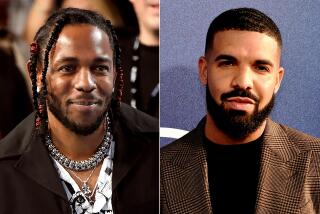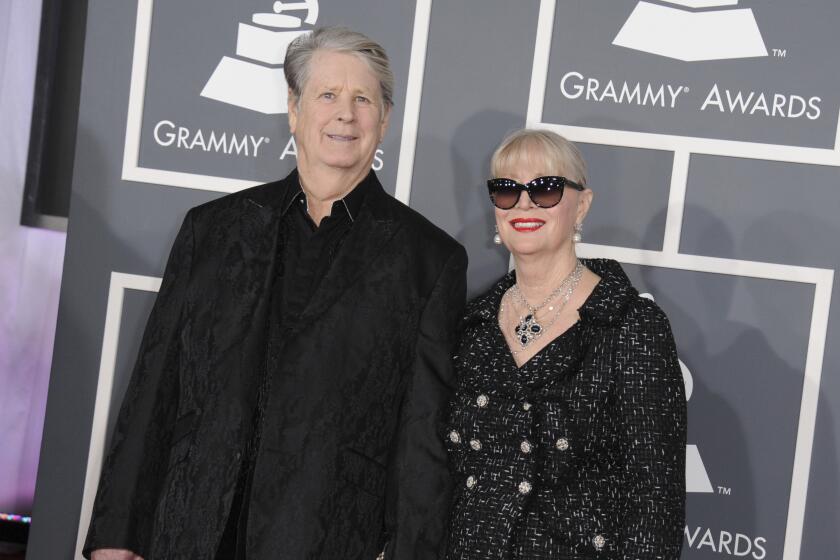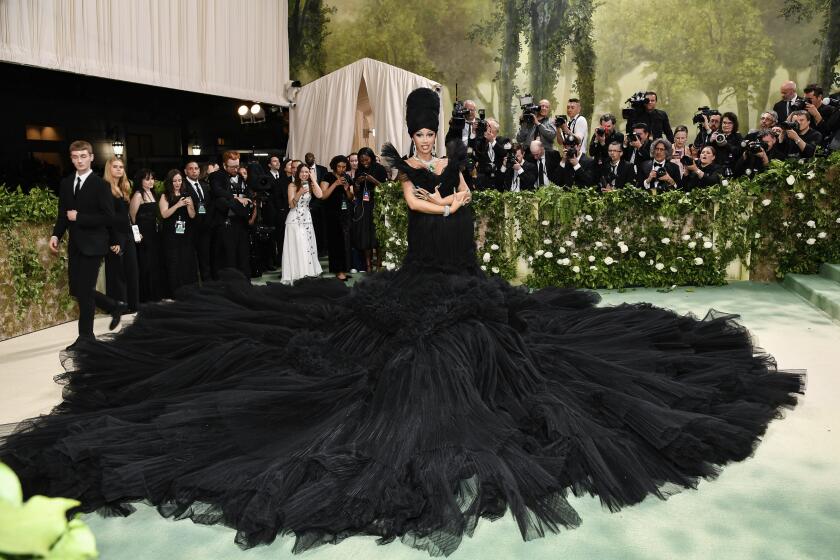If It’s White, Is It Rap?
After reading the article about the emergence of white rap artists and the history of music (“Will White Rappers Take Over the Hip-Hop Genre?,” by Geoff Boucher, May 15), I found myself remembering my own experiences as a hard-rock musician.
From 1976 to 1980 we were located in Long Beach, our quartet was named Tantrum (later changed to Front Page) and we were one of the better original hard-rock bands around at that time. We had cut our eyeteeth on artists like Jimi Hendrix, Black Sabbath, Led Zeppelin, Cream, Sly Stone, Mountain, Crosby, Stills, Nash & Young, and Yes. The only problem was that three of us were black.
Now I also realize that there are many factors that determine why a group makes it to the top. A lot of it is luck, management and a good gimmick. But I find the warmth and acceptance that white rappers are receiving today very interesting when I reflect upon the blatant racism that we had to deal with. I won’t go into to detail, but suffice to say that it totally altered my views on the concept of peace and love.
Just like Elvis, all it takes is for someone white to groan and moan like a black person, and he’s got a good shot at the big leagues. But for some reason Prince (remember when he opened for the Stones?) has never been included with white rock ‘n’ rollers. And groups like Bad Brains, 24-7, Spyz, Eric Gales (a brilliant guitarist) and Fishbone are never or rarely heard from.
What remains to be seen is: Once there are a large number of white rappers, will it go the same way the ‘60s rock ‘n’ roll movement went? Will some accountant-record producer decide that rap should be divided into categories, like black rap and pop rap or something like that?
I remember when you could hear Frank Zappa and Albert King on the same radio station, played by the same deejay. That was before the corporate bandits decided to splice and dice the music industry, which ruined the cultural revolution that was taking place.
ALVIN GRIMES
Los Angeles
The vitality and global impact of hip-hop are rooted in the creative genius of the African American and Afro-Latino ghetto youth who created the art form.
The minute that rap music strays from its African cultural foundation-inspiration, hip-hop as a genre will immediately lose its innovative spark and unceremoniously be relegated to the Vanilla Ice-Insane Clown Posse ash heap of white culture bandits and pretenders.
RONNIE BROWN
Inglewood
Rappers such as Ice Cube who think black rap will remain the focus of the predominately white middle-class youth audience misunderstand why these fans embraced it in the first place. Like early fans of rock ‘n’ roll, these kids (indeed all kids, in all times) view their own lives in the most dramatic light possible. They “identify” with the black rappers’ lives by ignoring the concrete differences between middle-class and ghetto life and projecting themselves onto an emotional landscape where everything is equally dramatic.
But as soon as white rappers come along who are as skilled as black rappers, the audience will turn away from the ghetto and embrace artists who more closely validate their own middle-class reality on all levels, even if the fit does look about as ridiculous as baggy, beltless, prison dungarees in Beverly Hills.
MATT LOGAN
Santa Monica
More to Read
The biggest entertainment stories
Get our big stories about Hollywood, film, television, music, arts, culture and more right in your inbox as soon as they publish.
You may occasionally receive promotional content from the Los Angeles Times.






